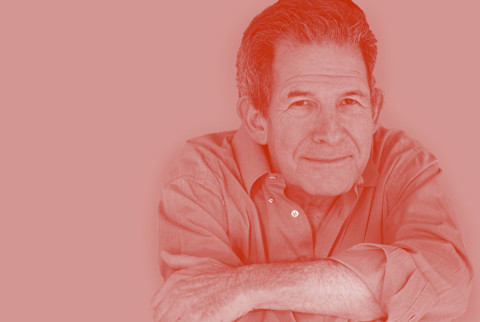This Spiritual Icon Was Lost In Life Until He Learned Emotional Literacy

Gary Zukav would be the first to tell you that he wasn't always the spiritual icon he is today. In fact, the New York Times bestselling author of Seat of the Soul admits he was walking through life frightened, lost, and full of addictions.
"Anger and addiction to sex were some of the frightened parts that were the most strong in my personality," he says on this episode of the mindbodygreen podcast. "It was part of my identity... I was pushing people away. I was creating distance, and with that distance came loneliness, and with that loneliness came more anger." He continues, "I was so frightened that I wasn't aware of what frightened me most."
It all paints a rather bleak picture—but everything changed when Zukav learned emotional awareness. Now? He has a true soul connection: He acts with love, he's free of those addictions, and he walks through life aligned with his purpose. And it all started with mastering emotional literacy.
How emotional awareness helped him connect with his soul.
"[Emotional awareness] is where the spiritual rubber meets the spiritual road," says Zukav. "Emotional awareness tells you exactly when that traction is needed." It will help you realize that you're angry because you're jealous, or because you're judgmental, or because you're upset. When you understand and unpack those emotions, you won't feel so overwhelmed by them—it certainly worked for this spiritual teacher.
So how do you practice emotional awareness, you ask? The first step, according to Zukav, is to actually focus on physical sensations: "I'm talking about experiences that stab, burn, churn, sting, ache, throb," he says. "The physical sensations that come with [fear] are as painful as accidentally hitting your thumb with a hammer when you're aiming for the nail." In other words: Heartache really does hurt, so reach for those physical sensations and determine what they're trying to tell you.
"This is emotional literacy," says Zukav. "When fear is present in you, not only are the physical sensations painful, but the thoughts are critical and judgmental of others or yourself." Meaning, that fear and those physical sensations are linked; so when those painful feelings start to crop up, you can understand that some semblance of fear is activated inside your body—be it rage, vengefulness, righteousness, jealousy, inferiority, entitlement, etc. "You can recognize fear with every [consuming] thought you have," says Zukav.
Once you have an understanding of those physical sensations and how they conjure up fear, you can use that same logic to reach for what feels good—the sensations that give you butterflies, that make you feel warm. "[When you feel] the kind of sensations you want more of, then you know that love is active in you," says Zukav.
Now, he chooses love over fear.
That said, the first step to acting with love is to, well, know when love is active inside of you. "These messages tell you when fear is active in you and when love is active in you," says Zukav. "And that's very important information to know because when you act with fear, you create painful consequences for yourself. And when you act with love, you create constructive and blissful consequences for yourself."
By being able to distinguish between love and fear, Zukav can focus on love and make decisions that align with his true purpose. However, that's not to say the fear has no meaning: Actually, Zukav says recognizing fear is an important part of spiritual growth.
"You can look at your emotions as messages from your soul," he explains. Fear and love are just the messengers—they aren't inherently good or bad; it's what you do with that information that gives it meaning. And according to Zukav, acting upon that love is what helped him align his personality with his soul.
The takeaway.
Of course, this is all easier said than done—even for a spiritual icon like Zukav, emotional literacy did not happen overnight. However, that shouldn't discourage you from doing the work. As Zukav notes, "If you turn it on today, it's easier to turn it on tomorrow, and the next day, and the next..."
